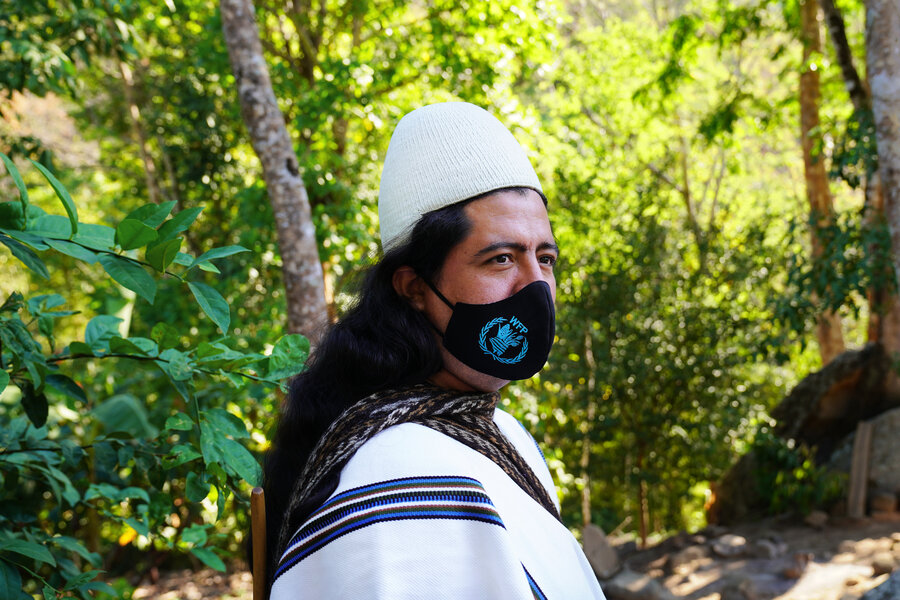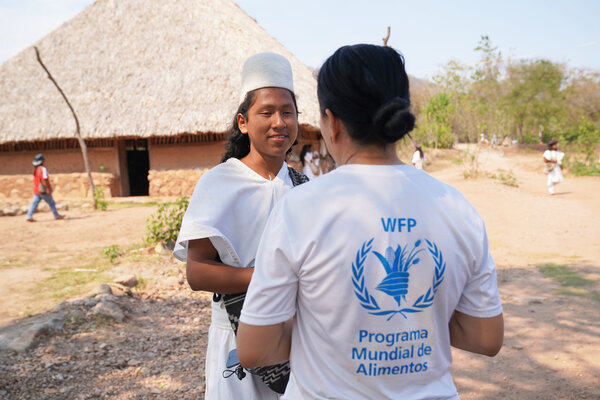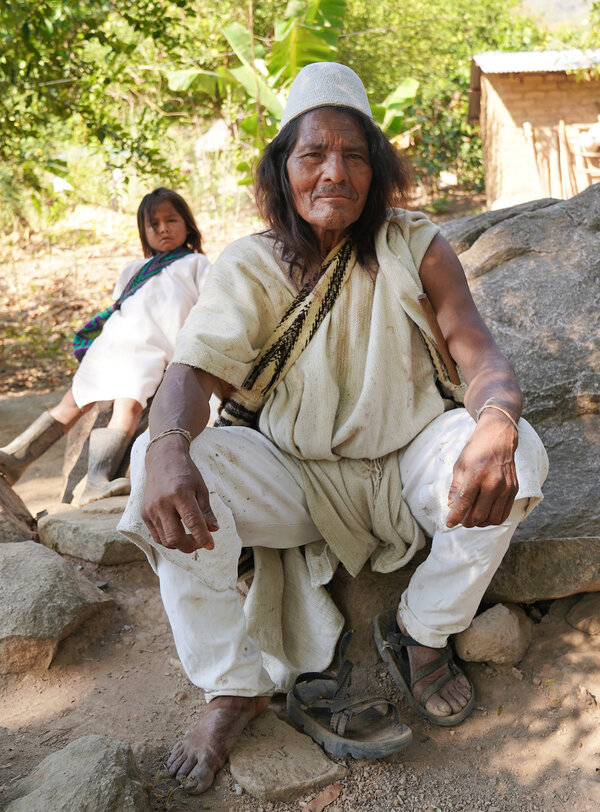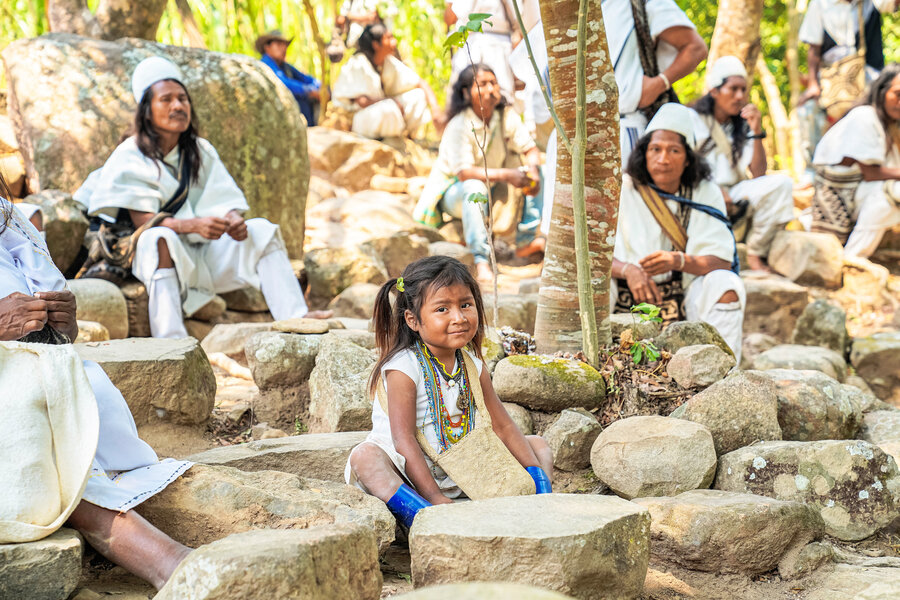WFP assists Indigenous communities hit hard by drought and COVID-19 pandemic

The Sierra Nevada de Santa Marta mountain range in the north of Colombia is the sacred homeland of the Arhuaco Indigenous people, and recognized by UNESCO as a Biosphere Reserve to promote sustainable development.
In the foothills of this imposing mountain range – the highest in a tropical zone – is the municipality of Pueblo Bello. Here, the heirs of a millenary culture pay tribute to mother earth and its natural resources through their worldview and traditions. There are currently 340,000 members of the Arhuaco Indigenous people, and their number has grown by 12,000 since 2005.
As in many parts of the world, COVID-19 hit the people here hard.

Community leader Saúl Mindiola and his wife Yoraima Navarro have three children, including a 2-month-old baby. They are among 420 families on the Jimain reservation who received assistance from the World Food Programme (WFP) – made possible thanks to financial support from the United States Agency for International Development (USAID).
Surrounded by the beauty of his ancestral territory, Saúl explains that the pandemic brought severe consequences for animal raising and agriculture. “Isolation limited our access to [the city of] Valledupar, where we would sell our products and buy seeds and other goods, as well as foods such as salt, oil and rice,” he explains. “This also had an impact on our ability to grow basic food crops such as corn, traditional beans, bananas and cocoa.”
The social, economic and health impacts of COVID-19 add to the ongoing challenges faced by people in this region, including severe drought and shortage of water for agricultural production, due to climate change.
WFP’s support has brought welcome relief to hundreds of Indigenous families: “Both the food baskets and the support we received to improve our livelihoods were a tremendous help for all of us,” says Saúl. He explained how each family was given a toolbox for setting up a garden, with WFP’s technical assistance. Each family created a well-fenced safe space, where they could maximize production with fertilizers and eight varieties of seeds including carrots, onion, tomato, chilli pepper and coriander.


Aticiney, another member of the community, highlighted the importance of this support at a time when extreme climate conditions make it difficult to grow and harvest food, putting the food security and survival of his community at risk.
“They [WFP] arrived at a very difficult time and helped us stabilize our families’ economy,” he explained. “For us it was a gift, which allowed us to experience happiness at home with our children. We wondered if perhaps they [WFP] were some kind of divinity coming from far away – that they took care of us cannot be a coincidence.”

Aticiney says that the community realized the importance of sharing the assistance, feeling a sense of duty to help other members of the community who did not receive the same support: “Not everyone in the community had access to the rations, but we understood that this was because resources were limited, not because there was an intention to leave anyone out. Then, among us, we looked at how we could help that neighbour who had not received any food supply.”
WFP’s efforts in Pueblo Bello are part of its commitment to support the food security and nutrition of the most vulnerable communities impacted by the socioeconomic effects of the pandemic, leaving no one behind, wherever they may be.


